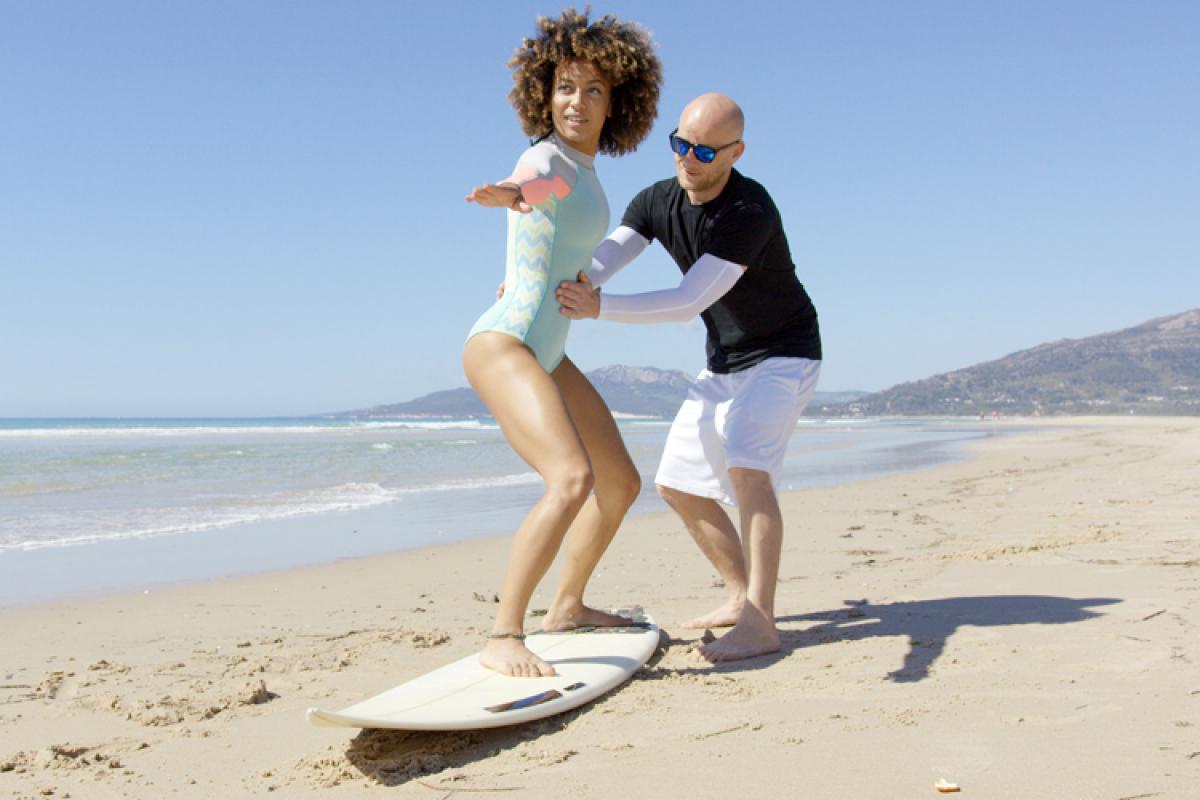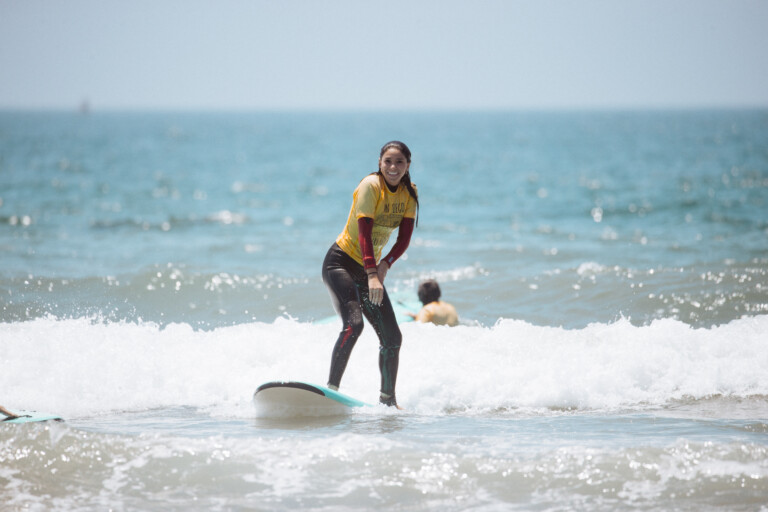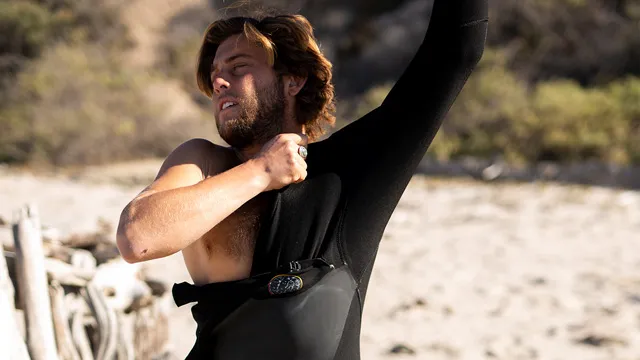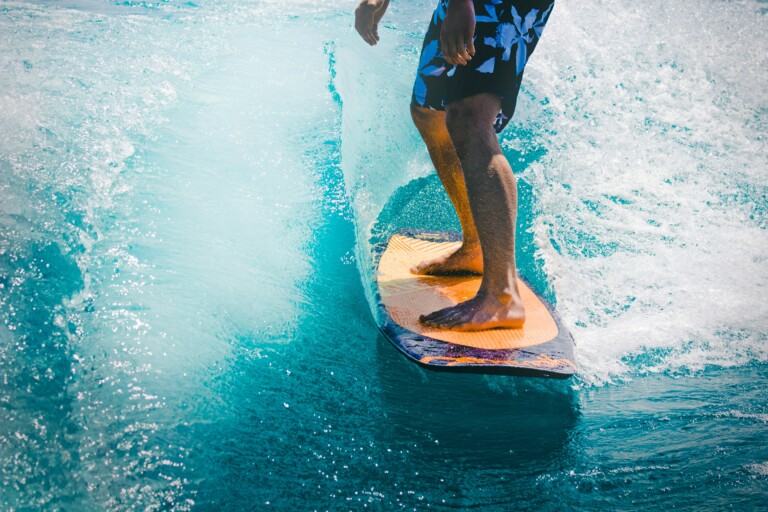Learning how surf can be an exciting and fulfilling experience. Here are some steps to help you get started to learn how to surf:
- Choose the Right Location: If you’re new to surfing, it’s best to begin in a beginner-friendly surf spot with gentle waves and a sandy bottom. Look for a beach that offers surfing lessons and has a surfing community, so you can learn from experienced surfers and instructors. This will make it much easier to learn how to surf.
- Take a Surfing Lesson: Enroll in a surfing lesson with a qualified instructor. Surfing lessons are essential, especially for beginners, as they teach you the basics of surfing, ocean safety, and proper techniques. Our instructors will help you progress faster and avoid common mistakes. We offer private, semi-private, and group lessons as well as other opportunities for anyone (ages 5+) to learn how to surf!
- Rent or Borrow Equipment: In the beginning, you don’t need to invest in your own surfboard and wetsuit. Many surf schools and beachside shops offer equipment rentals. Choose a beginner-friendly soft-top surfboard that’s wide and stable, as it will be easier to balance on.
- Learn Ocean Safety: Understanding ocean safety is crucial for all surfers. Learn about riptides, currents, and how to navigate the waves safely. Always surf in designated areas and follow any local guidelines or rules.
- Practice Paddling: Paddling is a fundamental skill in surfing, as it helps you catch waves and position yourself in the lineup. Practice paddling on your board in flat water to build strength and endurance.
- Practice Standing Up: Lie on your board and practice popping up to a standing position. It’s important to get the timing right to catch a wave and stand up quickly. Remember to keep your weight centered and look ahead while standing.
- Start with Small Waves: As a beginner, start with small waves that are easy to catch. Avoid big waves until you gain more experience and confidence.
- Be Patient and Persistent: Surfing takes time and practice to improve. Don’t get discouraged if you don’t catch many waves at first. Stay persistent, and with practice, you’ll gradually improve your skills.
- Respect Other Surfers: Surfing etiquette is essential. Be respectful of other surfers in the water, wait your turn, and follow the lineup rules. Understanding surfing etiquette will make the experience more enjoyable for everyone.
- Stay Safe: Always prioritize your safety. If you feel uncomfortable or tired, it’s okay to take a break. Don’t push yourself beyond your abilities, and be aware of your surroundings in the water.
Remember that surfing is a sport that requires time and dedication to master. Enjoy the learning process and the connection with the ocean, and soon you’ll be riding waves with confidence and joy. If you’re nervous about it, we want to help you learn to surf – check out what we can do for you!
















